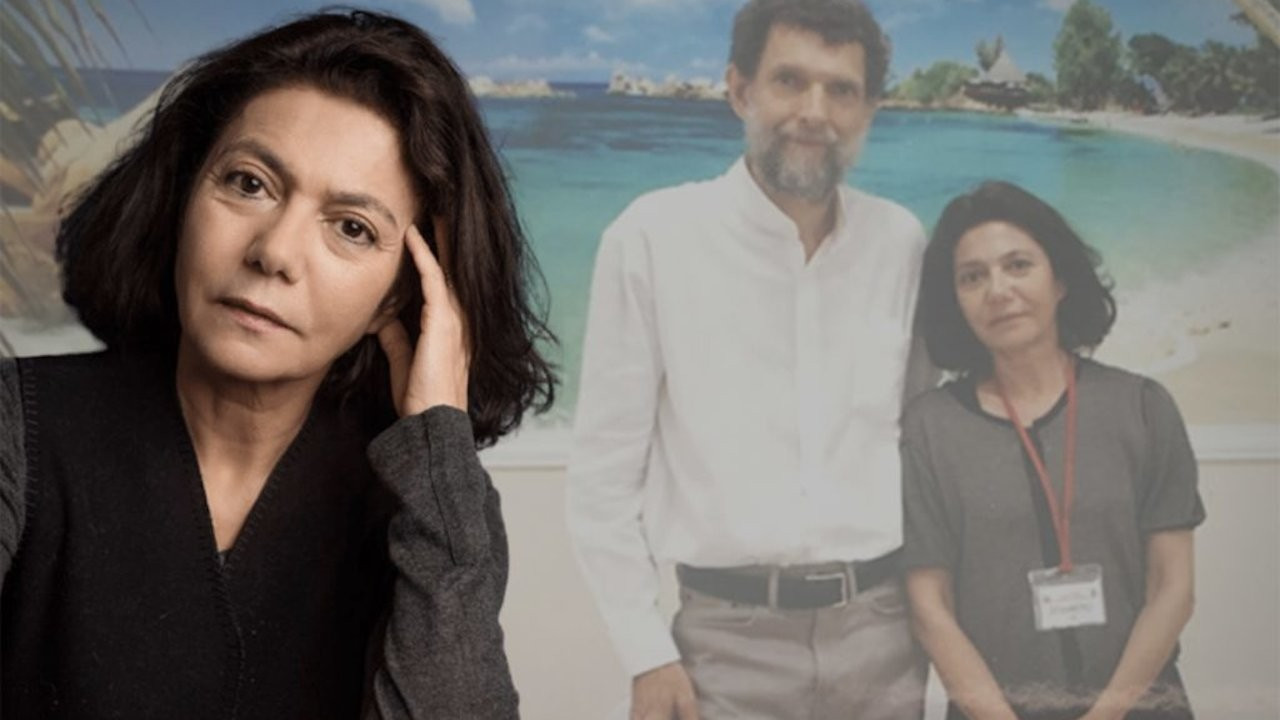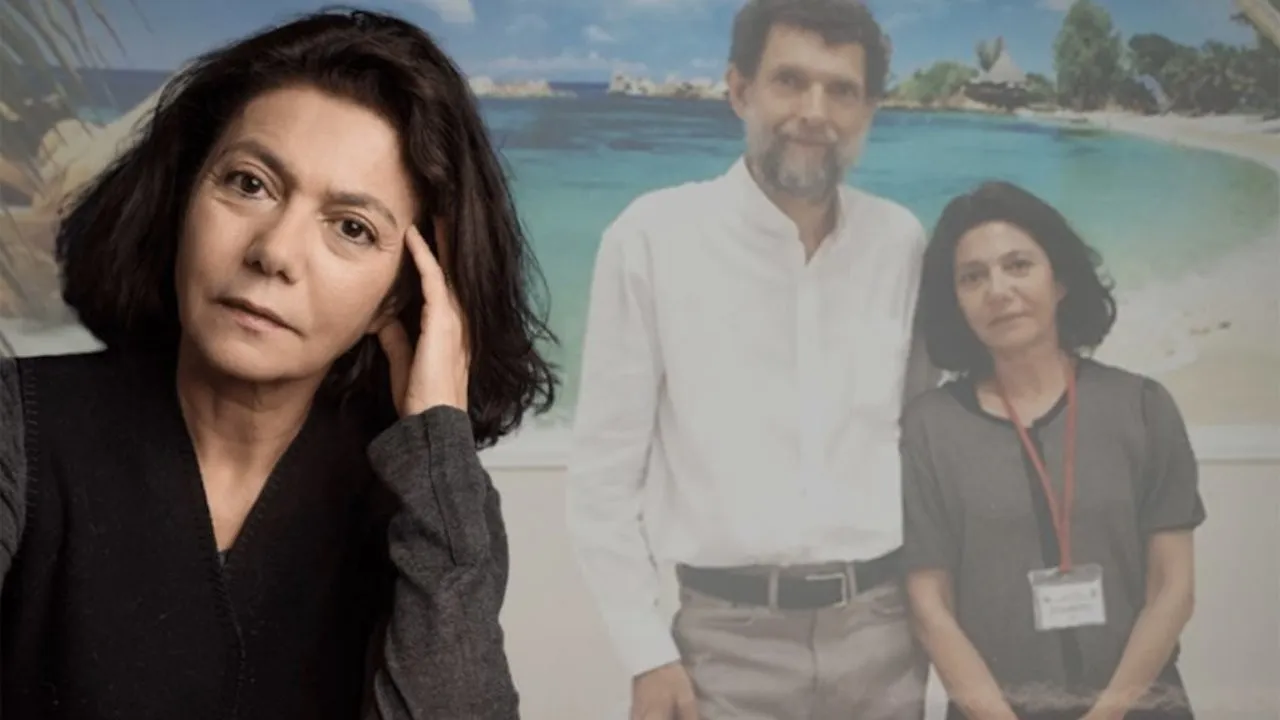Ayşe Buğra says she was 'deeply shaken' by Erdoğan's insults, as her students pen support letter
Prof. Ayşe Buğra has said that she was deeply shaken by President Erdoğan's insults against her, as she noted that calling her a "provocateur" is disrespectful towards the students. "The word is so horrible that it's disrespectful towards the students," Buğra said.
Duvar English
Prof. Ayşe Buğra, a prominent academic at Boğaziçi University, has said that she was deeply shaken by the insults of President Recep Tayyip Erdoğan, who earlier called her "a woman who is among the provocateurs and who is the wife of Osman Kavala, a representative of Soros."
Buğra was asked what she felt when she heard about Erdoğan's remarks against her and her husband, who has been behind bars for over three years on politically-motivated charges.
"Of course you get surprised. This is unacceptable. I'm deeply shaken, but we can't rule out anything anymore. Anything can happen," Buğra told the daily Sözcü on Feb. 7.
Buğra's remarks came after Erdoğan on Feb. 5 insulted both her and Kavala when he was commenting on the ongoing Boğaziçi University protests.
"The wife of Osman Kavala is a woman who is among the provocateurs at Boğaziçi University," Erdoğan said.
"Will we say, 'Take our country and such a valuable university and stir it up as you like?' It's impossible for us to allow it," the president also said, seeking to delegitimize the protests against his rector appointment.
Boğaziçi University students and academics have been protesting Erdoğan's appointment of Melih Bulu, a long-time ruling Justice and Development Party (AKP) member with poor skills in numerous areas, as rector to Turkey's most prestigious higher education institution since Jan. 2.
Reactions against the appointment grew following police brutality against the protestors, who have been peacefully calling on Bulu to resign, and academics and students from various other universities also showed support to Boğaziçi.
Erdoğan's AKP has been attempting to link the protestors to illegal or political groups, which has been a trend in all the protests against government practices. The protests have also become a tool for the government to target Turkey's LGBT community.
Eight students have been arrested since the beginning of the protests, while many of those detained were placed under house arrest or released on condition of judicial control.
Buğra on Feb. 7 said that she visited the university twice since the beginning of the protests and attended one demonstration.
"The word 'provocation' is so horrible that it's disrespectful towards the students," Buğra said.
"It's probably seen that our students are not individuals who can start demonstrating through their lecturers' directives. What can I say?" she asked, adding that the academics and students are trying to protect the university.
"You can't enroll in Boğaziçi very easily. These students are very hardworking and they know what they're doing. They love their university and are proud of it. They don't want it to be destroyed by outside factors. This is a protective instinct," Buğra said.
'This has become torture for us'
She was also asked to comment on a Turkish court's move to combine two cases against Kavala on Feb. 5.
"This process is being extended and it has become torture for us. We are not young people. After a certain point, 3.5 years become a major period of time taken from a person's life. This has stopped being bearable," Buğra said.
A Turkish court ruled to combine the two cases against philanthropist and human rights activist Kavala after an appeals court overturned his acquittal in one of them.
Immediately after he and eight others were acquitted last February in a case related to nationwide Gezi Park protests in 2013, Kavala was ordered jailed pending trial over charges related to a 2016 coup attempt. The acquittal verdict was also appealed.
Last month, the appeals court ruled to overturn the Gezi-related verdicts because some evidence was excluded and that it should be joined with the other case against Kavala.
On Feb. 5, the court handling the coup-related case agreed to the combination and rejected Kavala's request to be released, extending his detention since late 2017 by nearly four months.
Kavala is accused of espionage and attempting to overthrow the constitutional order in the coup-related case. He denies all charges.
The European Court of Human Rights called for Kavala's release in late 2019, saying his detention aimed to silence him. The Council of Europe's Committee of Ministers has repeatedly called on Turkey to implement the ruling.
Buğra's students pen a letter of support
Separately, Buğra's students penned a letter of support, saying that they are deeply saddened by the personal and malicious attacks against her.
"Ayşe Buğra is a source of inspiration for thousands of students she has taught and mentored. She is also a prolific scholar of international renown with significant contributions to the development of the social policy field. She is a treasure for both Boğaziçi University and Turkey," they said.
"Buğra has cultivated a remarkable legacy in the social sciences with her graduate students researching and teaching in the most prestigious universities in the world," the students added.
Saying that Buğra is "profoundly generous, thoughtful and modest," the students praised her "ceaseless commitment to learning and producing knowledge," as well as for "touching the lives of her students."
"We bear witness to her influence and contributions as an educator, researcher, and mentor. Once again, we would like to express our sadness and distress at the personal attacks against our teacher. We demand these attacks be stopped immediately," the students said.


